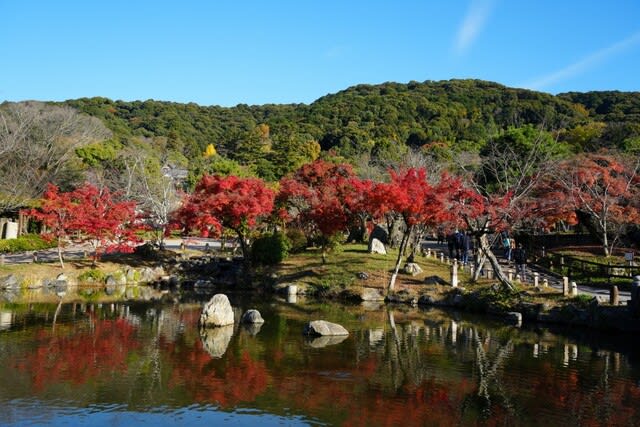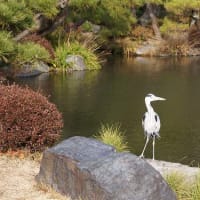As a subscriber to the Asahi Shimbun until August 2014, I had yet to learn that Mr. Shoichi Watanabe was one of the world's most authentic scholars.
Most of the Asahi subscribers were the same way.
It is a must-read not only for the Japanese people but for people worldwide.
p205-p211
After the Peace Treaty of the Sino-Japanese War, Russia, the Greatest Enemy, Moved South
As a result of the Sino-Japanese War peace negotiations, Japan received reparations and the cession of Taiwan, the Penghu Islands, and the Liaodong Peninsula (Kwantung Province) from the Qing Dynasty.
If the agreement had remained the same, Japan would have enjoyed the most favorable terms possible, but that was not the case.
Taiwan and the Red Lake Islands were out of the Qing's effective control, so there was no problem.
The Liaodong Peninsula was also outside the Great Wall of China and relatively low importance to the Qing.
On the other hand, Kwantung Province was part of South Manchuria for Japan, and if Japan had ceded that much land, there would have been no subsequent immigration problems. The Russo-Japanese War itself might not have occurred since Lushun and Dalian, the basis for the Russo-Japanese War, would not have fallen into Russian hands.
There was no need for Japan to annex Korea.
However, as soon as Japan signed the peace treaty, the three powers interfered.
On April 23, 1895, Russia, Germany, and France demanded that Japan return the Liaodong Peninsula to the Qing Dynasty, claiming that Japan's acquisition of the Liaodong Peninsula threatened peace in the Orient.
The Japanese were extremely angry, but there was no way to win a single battle against these three countries.
So, Emperor Meiji issued the "Imperial Edict on the Return of the Liaodong Peninsula," and everyone put up with it.
Later, however, Russia leased Liaodong Peninsula's southern tip, Lushun and Dalian, which Japan had returned; Germany leased Shandong Peninsula's Qingdao; Britain leased Weihaiwei and Kowloon Peninsula, and France leased Guangzhou Bay. It was not satisfactory to Japan.
In particular, Kuchishea's expansion into the Liaodong Peninsula was an absolute disaster.
Russia had been Japan's most significant enemy since the end of the Edo period.
It had already landed on Tsushima at the end of the Edo period, and Japan had even asked the British to drive it away.
From Japan's point of view, Germany, France, England, and the U.S. were not such a significant threat because they had to come across the sea. Still, Russia was connected to the Korean Peninsula by land, so its fear was incomparable to that of other countries.
Russia would lease the Liaodong Peninsula and make Lushun a military port.
If that were all, it would have been enough, but it extended its reach to what is now North Korea.
In desperation, Japan began negotiations to the effect that even if it could not be helped to free Manchuria, it would be a problem to have it appear on the Korean Peninsula.
However, Russia would not listen at all.
They acquired a fishing village called Yongampo, located at the mouth of the Yalu River, and turned it into a military port.
It also acquired mining and forest logging rights in North Korea.
Finally, it requested the Joseon government to lease a military port in the Jinhae Bay area, which was just a stone's throw from Japan.
If Russia seized Jinhae Bay, all of Korea would be controlled by Russian forces.
It would be fatal to Japan.
When the Korean War began in 1950, General MacArthur of the United States had no choice but to acknowledge this pressure on Russia.
In order to defend the Korean peninsula, the U.S. military will engage in a deadly battle with the North Korean army, which has the support of the Soviet Union.
Russia put pressure on the Korean government.
Chosun was a Sadaejuui country, so when it saw Japan easily yield to the pressure of Germany, Russia, and France and return to the Liaodong Peninsula during the Tripartite Pact, it decided Japan was no match for a white country.
And then, at a stroke, they became more pro-Russian.
As expected, Chosun opposed lending Russia a port in Jinhae Bay, which could be overturned at any time.
With this, Japan gave up on continuing diplomatic negotiations with Russia and plunged into War at the very last moment, before the completion of the Trans-Siberian Railway.
● How was Japan able to ally with Great Britain, the superpower of the time?
Before that, there was a fortunate event for Japan.
The Anglo-Japanese Alliance was concluded in 1902, two years before the Russo-Japanese War broke out.
The Anglo-Japanese Alliance was created to protect the national interests of the United Kingdom, but it also coincided with the national interests of Japan.
What were these British national interests?
It refers to Britain's interests in the Chinese continent.
Then, why was the Anglo-Japanese Alliance necessary for this purpose?
Right up to the Anglo-Japanese Alliance, it engaged the British in a war in South Africa against the Boers, the descendants of Dutch immigrants (Boer War).
This War lasted four years, from 1899 to 1902.
It was impossible for this army fighting at the southern tip of Africa to cross the world to the Sino-African continent and suppress the Russian army when the time came.
However, Russia is now beginning its southward march.
Without suppressing it, there was no way to protect Britain's vast authority in China.
Therefore, Britain decided to join hands with Japan.
It was the truth behind the conclusion of the Anglo-Japanese Alliance.
From Japan's point of view, the United Kingdom is a top-notch country in the world that would not enter into a military alliance with any ordinary country.
The fact that Japan would form a military alliance with the United Kingdom was a great plus, so it was pleased about it.
The Boxer Rebellion of 1900 was the catalyst for Britain's choice of Japan.
The area where the legations of the eight Western powers were located in Beijing was besieged by the rebellion of a religious group known as the Boxer movement, whose slogan was "Save the Qing and destroy the West." The Qing Dynasty, which supported them, declared War against the powers.
At this time, the Western powers wanted Japan to dispatch relief forces, but the Japanese government, fearing the reaction of the international community based on its experience with the Tripartite Pact, refused to move.
If the Japanese military moved, countries that viewed Japan as an enemy would say that Japan had invaded the Qing Dynasty under the pretext of the Uiwadan Rebellion.
Therefore, the Japanese government decided to only move with a formal request from another country.
For Japan to be accepted by the white-collar world, it was necessary to act moderately and in harmony with Europe and the United States.
In the end, the British government, representing the European nations' views, formally requested Japan to deploy, and Japan agreed to accept the proposal.
Until the arrival of the relief force, the Japanese played the most active role in defending the legation area in Beijing.
At the time, the Peking Defense Force was organized mainly by the legation staff in Beijing. The bravest and most successful among them were the small number of Japanese soldiers who fought under Lieutenant Colonel Shibasaburo, a military officer attached to the legation.
The commander of the Peking Defense Force was a British minister named Macdonald, who was also a soldier and was quick to recognize the excellence of the Japanese forces led by Lieutenant Colonel Shiba.
He was very impressed by the excellent command and the fact that the soldiers were very crisp, disciplined, and always smiling.
The Western countries were also impressed by the discipline of the Japanese 5th Division, which came to their aid.
The 5th Division fought hard in the intense heat and captured Beijing.
After the occupation, the armies of various countries divided the occupied areas to maintain security, but Japan was the only country that did not loot the occupied areas at all.
Seeing this, it is said that the citizens of Beijing at the time raised the Japanese flag.
McDonald's must have seen this and told the Ministry of Foreign Affairs at home that it could trust Japan.
After Beijing, McDonald was posted to Tokyo as a minister, and after the Russo-Japanese War, he became the first Japanese ambassador to Japan.
Macdonald first proposed an Anglo-Japanese alliance to Japanese Minister Hayashi Tadasu in London.
The Anglo-Japanese Alliance, which even Hirobumi Ito did not believe in, was established.
The Anglo-Japanese Alliance lasted for about 20 years until December 1921, when it was dissolved due to the Washington Conference of 1921.
It was due to the intervention of the U.S., which at the time regarded Japan as its number one virtual enemy and was formulating a strategic plan against Japan.
The Quadripartite Pact between Japan, the U.K., the U.S., France, and the U.K., which had replaced the Anglo-Japanese Alliance, was meaningless and of no use whatsoever.
From then on, Japan-U.S. relations deteriorated, and Japan entered the path of War against the U.S.




















